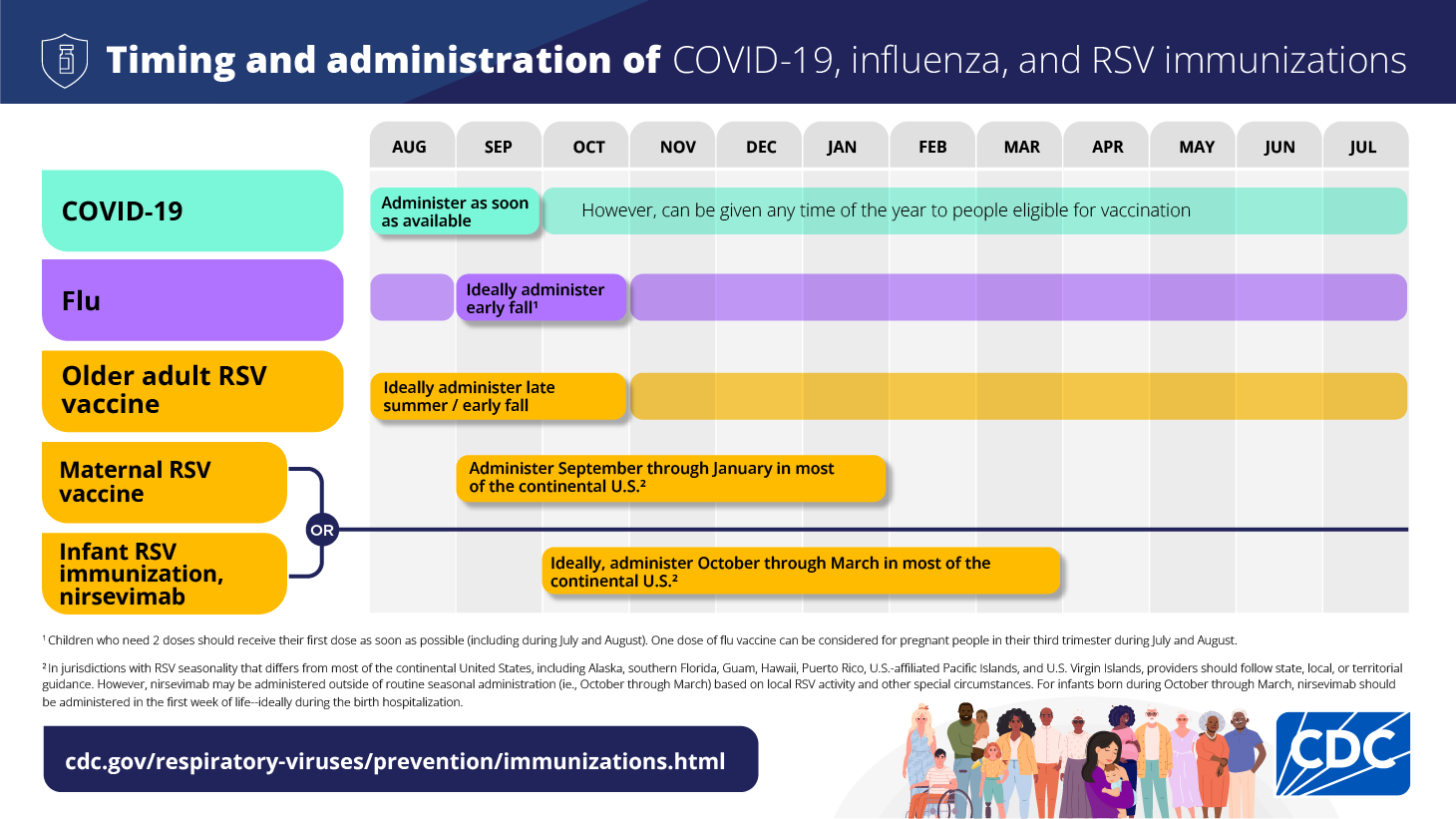Learn what respiratory illnesses have in common and steps to help protect yourself and others.
View data for COVID-19, flu, and RSV activity in your community and across the United States.
Core strategies can help prevent the spread of viruses that cause common respiratory illnesses.
How people of different ages, race and ethnicity, and sex are affected by COVID-19, flu, and RSV.
Featured
A partner toolkit with essential respiratory illness resources and communication materials.
For Healthcare Professionals
Current information about immunizing patients for the 2025-2026 respiratory virus season.
Help educate your patients about seasonal immunization to help protect against respiratory illness.







